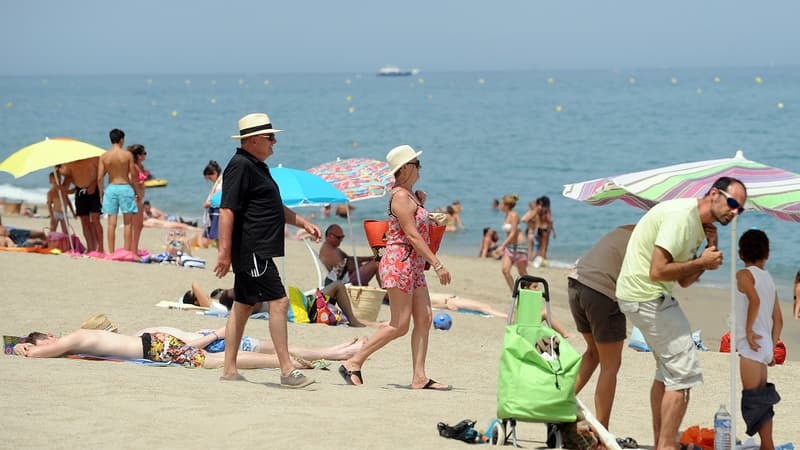Sea or mountain, exotic country or French countryside? Tourists choose their holiday destination depending on the price, availability or simply their personal tastes. But in recent years, the new criteria have come to guide the way they decide their holiday place.
Mega-feux that mark the imagination
Since the beginning of 2025, the fires have already devastated more than one million hectares (10,000 km2) in the European Union, a record area since the beginning of statistics in 2006. Spain has been particularly affected, especially in the province of León, with violent forest fires. France should not be overcome, especially with an exceptional fire in the AUDE.
But then tourists will avoid these regions? “From the violent fires of 2023, we see that Continental Greece has struggled to find its usual tourists,” says Patrice Caradec, president of Seto (Union of Tour Operating Companies).
According to Valérie Boned, president of the organization of travel companies, fires in Greece have had an effect but only in the short term. “After an event like this, we see an impact on the months that continue with a strong fall in frequency,” he said.
“However, these mediated climatic events have an impact on the imaginary,” he admits.
Brittany, Hauts-De-France, Mountain … Revenge of Fresh Destinations
If the dissuasive effects of special events such as forest fires are not automatic, heat seems to play a more preponderant role in the choice of vacationers. “We see a substantive trend, with new destinations that increasingly qualify as Brittany, northern France or the mountain,” explains Valérie Boned.
Until the hegemony of the coast of Azur as a holiday destination in France? Not quite, but “the other destinations benefit from a dynamic, in particular the mountain that has been reinvented to offer summer activities,” he tells Patrice Caradec.
Valérie Boned also observes a growing attraction for Scandinavian countries or northern Europe, which are more fresh destinations. However, it should be taken into account that the most tourist countries (France, Spain, Greece, Italy …) are still quite hot countries, at least in summer.
Finally, this consideration of heat waves and temperatures helps redefine traditional vacation periods, which now tend to bed.
An anti-trump effect
If extreme climatic events are increasing, geopolitical tensions are also increasing. Tourists have always taken into account security criteria, but since Covir, Valérie Boned has observed greater sensitivity to uncertainty.
“They ask us more because when reserving an organized trip, there is attention in case of a problem, be it a conflict, a strike of air drivers or mega-fireis,” says the specialist, and also points out a 30% increase in travel insurance.
In the case of the United States, the return to the power of Donald Trump and his aggressive trade and migration policy represent a turning point. The Canadians boycotted in the United States since Trump threatened to make their country the 51st American state. In May 2025, the number of Canadian tourists visited the country of Uncle Sam had fallen a quarter compared to last year, according to the National Travel and Tourism Office (American Tourism and Travel Office).
The organization of travel companies registered a 20% drop in reserves for the United States in August 2025 compared to August 2024. The fall is the same order of magnitude next to visits operators. “The decrease has been gradual since February and what has been called ‘the crash of the Oval office’ between Zelensky and Trump,” said Valérie Boned.
“Tourists are increasingly intentional”
Despite these new paradigms, Valérie Boned recalls that the price remains the first criterion of customers. She cites the example of long letters (which defines how the flights of more than 8 hours) particularly expensive this year. As a result, demand has decreased.
Similarly, monetary fluctuations can have an impact on travelers’ behavior. Therefore, Japan faces an influx of tourists and the weakness of the Yen compared to the dollar or the euro is not related.
He believes that “tourists are increasingly intentional,” that is, they actively seek a destination that corresponds to their priority instead of simply avoiding certain places.
Source: BFM TV


